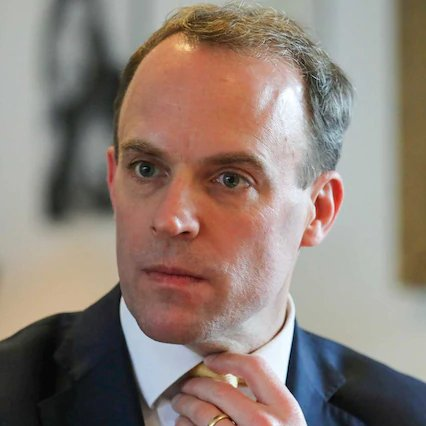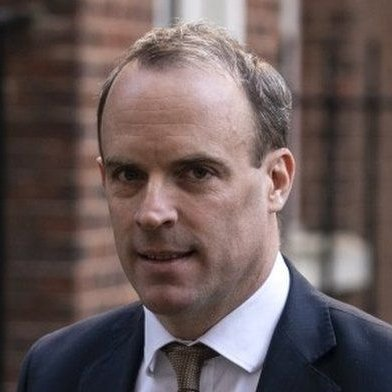
Conservatism? Liberalism? Neoliberalism?
It's been argued that neoliberalism originated as much in opposition to fascism as to socialism – a point that Foucault addresses in detail in his analysis of ordoliberalism in his lectures on biopolitics...
journals.sagepub.com/doi/full/10.11…
It's been argued that neoliberalism originated as much in opposition to fascism as to socialism – a point that Foucault addresses in detail in his analysis of ordoliberalism in his lectures on biopolitics...
journals.sagepub.com/doi/full/10.11…
'Opposition to fascism did not lead to a uniform view of the role of the state, liberty or sovereignty, & from its inception in the 1920s, neoliberalism has a complex & uneasy relationship with other movements on the political right, in particular conservatism & libertarianism.'
At the Walter Lippmann Colloquium in 1938 – the starting point of European neoliberalism for Foucault – differences were aired that became more significant over time. The majority of those present sided with Hayek in calling for the reinvention of liberalism.
A shift from classical forms of Adam Smithesque laissez-faire liberalism - moving away from a naturalistic conception of markets as things that worked best through minimal government interference & instead asked what Govt & state could do in service of markets & their freedoms.
Not everyone agreed. For example, Ludwig von Mises was one of a few to continue to extol the virtues of classical liberalism, arguing that it was not ‘the free play of economic forces’ but rather ‘the anti-liberal policies of governments’ that was the problem.
Other participants in the colloquium were less vocal at this event. but later revealed differences with Hayek & drifted away from the Mont Pèlerin Society, in particular Raymond Aron & Michael Polanyi, who worked instead with the Congress for Cultural Freedom through the 1950s.
Aron was more outspoken in his critique of Hayek, not only rejecting his raw economic individualism in favour of a more traditional brand of political conservatism but also attacking his conception of freedom in a devastating review of Hayek’s 'The Constitution of Liberty'.
Even among those who are commonly positioned together as central figures in the history of the neoliberal project there are important methodological & political differences.
Hayek’s economic & political views were shaped by key Austrian figures such as Menger & von Mises.
Hayek’s economic & political views were shaped by key Austrian figures such as Menger & von Mises.
But many of the positions of key ordoliberal thinkers were incompatible with the new brand of economic individualism championed by Hayek.
Foucault described ordoliberalism as a call for the ‘general regulation of society by the market’ a process from which nothing is sacred.
Foucault described ordoliberalism as a call for the ‘general regulation of society by the market’ a process from which nothing is sacred.
But this is mistaken: figures such as Röpke were deeply conservative & by no means believed either that principles of competition should be injected into all spheres of social life or that all societal institutions should or could be opened up to the free play of market forces.
In his 'A Humane Economy', Röpke is quite clear on this point: ‘The truth is that competition, which we need as a regulator in a free economy, comes up on all sides against limits which we would not wish it to transgress’.
In this text, Röpke defends institutions such as the family & the church & argues that ‘genuine communities & tradition' should be protected from intrusion by the market. Elsewhere, Röpke asserted the value of European culture, & even spoke in defence of South African apartheid.
Such views set Röpke apart from most other members of the Mont Pèlerin Society & reveal conservative & racist commitments that are far removed from a simplistic belief in the unbridled powers of competition, as sometimes depicted by Foucault in his biopolitics lectures.
Neoliberalism, then, emerged in tension, on one hand, with laissez-faire liberalism or what subsequently became known as libertarianism, &, on the other hand, to forms of conservativism that asserted the value of religion (in particular Christianity), nation, & race.
In terms of laissez-faire liberalism, in the Road to Serfdom Hayek stands against what he calls ‘a dogmatic laissez-faire attitude’ on the grounds that the ‘forces of competition’ should be used as a means for ‘co-ordinating human effort’ rather than ‘leaving things as they are’.
This became central to the work of the Mont Pèlerin Society, which, from its inception, addressed the idea that ‘competition can be made more effective & more beneficent by certain activities of government than it would be without them’.
In terms of classic Conservatism, Hayek stands against it in the postscript to The Constitution of Liberty, arguing that it stands against ‘drastic change’ &, because of this, tends to be dragged along paths not of its own choosing.
Hayek says, by contrast, that his own brand of liberalism, unlike conservatism, has the ‘courage & confidence’ to oppose socialism & to also provide a genuine alternative.
Hayek argues that it is wrong to understand socialism, liberalism & conservatism as different positions along a single line that runs from socialism on the left to conservatism on the right, & liberalism somewhere in between.
He plots these political positions as corners of a triangle, with conservatism in one corner, pulling back from liberalism & socialism in the other two: conservatism & liberalism do not exist along a continuum, but converge on & depart from socialist ideas from different angles.
Hayek articulates differences between conservatism & neoliberalism: the former has a fondness for authority; misunderstands the nature & workings of economic forces; fears new ideas; is prone to ‘strident nationalism’ & seeks to defend ‘our industry’ (as, he says does socialism).
Neoliberalism, Hayek argues, provides a corrective to each of these mistakes: traditional forms of authority (church, state, or family) & all ‘obstacles to free growth’ should be swept aside by the ‘spontaneous forces’ of the free market.
Economic forces shouldn't be understood through models of equilibrium but through the dynamics of the price mechanism; there should be a new form of internationalism based not on workers’ rights or solidarity but frictionless movement of capital & labour across national borders.
Hayek’s position became more complex over time. In 1944's The Road to Serfdom & his 1948 inaugural address to the Mont Pèlerin Society, he stood against libertarian calls for small govt & the minimal state & arguing that both can be harnessed to serve market forces & freedoms.
But in his later work, he was less concerned with occupying/reprogramming the state eg in his work on the denationalization of money, arguing that central banks should be disbanded & replaced by commercial banks that are free to issue currencies from which consumers can choose.
Hayek attacked the ability for any nation-state to exercise monetary control over its territory & proposed instead that money should be fully marketized rather than used by national governments to serve their own political interests.
The boundaries between neoliberalism & libertarianism become blurred: Hayek moves away from seeking to redefine the rationale for govt & state along market-based lines, & instead seeks to break state monopoly over the money supply in a bid to enhance individual consumer freedoms.
Did Hayek’s neoliberalism became more libertarian in basis rather than conservative? Some writers suggest not.
In The Morals of the Market, Jessica Whyte argues that something different was happening.
In The Morals of the Market, Jessica Whyte argues that something different was happening.
‘Rather than an external supplement, or a pragmatic partner, social conservatism, including explicit appeals to family values, Christianity & “Western civilisation”, was foundational to the consolidation of organised neoliberalism in mid 20thC. Hayek was central to this project.
In his inaugural 1948 address to the Mont Pèlerin Society, Hayek speaks of ‘moral aims’ & ‘moral fervour’, & this concern with the question of morality became a theme of his later work, starting with his 1961 lecture on ‘The Moral Element in Free Enterprise’.
The arguments of this lecture are surprising: that if freedom is to ‘work well’ it ‘requires not only moral standards but moral standards of a particular kind’, &, for this reason, ‘we should do all in our power to spread the appropriate moral convictions’.
Whyte explains that the importance of morals, for Hayek, lies in their appeal to individual responsibility rather than to government-led forms of ‘coercive enforcement’.
While it might seem such a position would be amenable to right-wing libertarians, this is far from the case.
While it might seem such a position would be amenable to right-wing libertarians, this is far from the case.
Murray Rothbard, in particular, argued that Hayek was too conservative in his defence of tradition & in believing that ‘reason & rationalism are synonymous with government coercion … rather than realizing that reason is in fact the very opposite of coercion’.
This, along with the continued role Hayek gives to ‘noncoercive’ activities of the state, leads Rothbard to call The Constitution of Liberty, in which Hayek actively sought to distance himself from conservatism, an ‘evil’ & ‘dangerous’ book.
William Davies & Nichola Gane's excellent overview (quoted above, in this #THREAD) shows that neoliberalism has never existed in a fixed relation to its political others but emerged in tension to conservatism & libertarianism while, at times, sharing the ground of both.
This is important as it suggests that current conservative & libertarian reactions against neoliberalism do not simply signal the death of the latter, far from it, but rather the emergence of new, shifting & hybrid political positions & interests on the political right.
#Nuance
#Nuance
For this reason, "post-neoliberalism" is not used as a descriptor of a world beyond neoliberalism, but rather as a device for questioning the mutation of previous forms of liberalism & neoliberalism, & the challenges they pose in the present.
journals.sagepub.com/doi/full/10.11…
journals.sagepub.com/doi/full/10.11…
• • •
Missing some Tweet in this thread? You can try to
force a refresh























